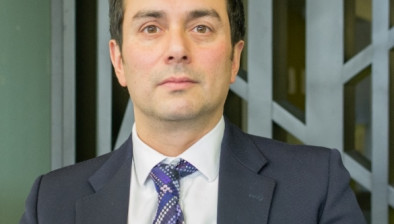NI Court of Appeal: Sentence of 12 years’ imprisonment for cannabis farm ‘lynchpin’ was appropriate

Northern Ireland’s Court of Appeal has determined that a 12-year sentence in relation to cultivating cannabis was not excessive, given the scope and value of the operation, and the control exercised by the accused.

About this case:
- Citation:[2022] NICA 78
- Judgment:
- Court:NI Court of Appeal
- Judge:Mr Justice Stephen Fowler
However, the court did reduce a separate sentence which had been applied concurrently to the cannabis offence.
Background
The applicant, a 44-year-old married man with two teenage children, was born in Vietnam and settled in the UK with his parents when he was 12 years old. He had no relevant criminal record.
He was convicted at Downpatrick Crown Court in Belfast, in relation to offences of cultivation of cannabis, abstracting electricity, assisting unlawful immigration, and perverting the course of justice.
The operation comprised of two residential properties in Coalisland and Belfast, and a large commercial unit at La Mon Industrial Estate. Each factory had been rented by the applicant and configured with hydroponics and horticulture.
The lighting and heating required very considerable consumption of abstracted electricity, which, alongside the exploitation of an unlawful migrant worker, ensured that running costs were low and profits were maximised. The potential street value of the cannabis produced was estimated as being between £750,000 and £2,250,000.
The indictment concerned the sourcing, equipping, and operation of three cannabis factories with counts reflecting cultivation and unlawful abstraction of electricity at each site. There was also one count of assisting unlawful immigration of a worker or “gardener” and a count of attempting to pervert the course of justice, subsequent to the discovery of the cultivation enterprise, in an attempt avoid conviction.
The applicant was sentenced in 2021 to a total determinate custodial sentence of 15 years’ imprisonment. This included several concurrent sentences, with the highest being 12 years’ imprisonment for cultivating cannabis, as well as a three-year consecutive sentence for perverting the course of justice.
This renewal of leave to appeal his sentence involved two grounds of appeal. The first ground was that the sentence of 12 years for the cannabis counts was too high, and the second alleged that imposing a consecutive three-year sentence for perverting the course of justice rendered the sentence manifestly excessive and offended the totality principle.
Sentencing remarks
Having presided over the applicant’s trial, the judge concluded that the applicant was the “lynchpin” in the entire criminal enterprise. He found that he was the controlling mind behind the substantial, sophisticated, and extraordinarily profitable network of cannabis cultivation factories.
This contrasted the applicant’s defence of being an innocent “dupe” manipulated by others. Rather, the judge regarded the applicant as the person “calling the shots” and manipulating his co-accused Hamilton after their arrest.
The applicant had maintained that he was “stupid and naïve”, lacking in any criminal intent and manipulated by others. There were no indications of remorse and he continued to deny the offences.
Consideration
The maximum sentence for cultivation of cannabis contrary to section 6(2) of the Misuse of Drugs Act 1971 is 14 years’ imprisonment.
Relying on McKeown & Han Lin [2013] NICA 38 and R v Xiong Xu and others [2007] EWCA Crim 3129, the applicant argued that the proper sentence for an organiser in these circumstances should have been in the region of six or seven years. It was also argued that both the applicant and his co-accused should have had the same sentencing starting point.
However, the court found this to be an oversimplification. The court accepted that the sentencing starting point for managers of such an operation is somewhere between three and seven years, depending on the level of their involvement and the value of the cannabis being produced. However, the case law made clear that more severe sentences “may be appropriate for those who control a large number or network of such operations”.
Here, given the overall “network of operations”, and the number, output, and profitability of these operations in a relatively small jurisdiction, the appropriate starting range was between seven and 14 years.
The court accepted that a factor in this sentencing may have also been the deterrence of others from involvement in commercial cultivation of cannabis.
The court also considered the sentence of the co-accused, which was 10 years, further reduced by three-and-a-half years, due to a guilty plea. Given that the co-accused was found to be a subordinate to the applicant, a “trusted lieutenant”, the judge was entitled to and justified in drawing a distinction between Hamilton and the applicant.
In comparing the two sentences, the court found that “there can be no suggestion the applicant could feel a sense of justifiable grievance or that an objective observer on consideration of all the facts would feel that the applicant has been treated unjustly”.
Totality
The final ground of appeal was based on totality, arguing that the impact of a consecutive sentence of three years, on top of the 12-year sentence for the cultivation offences, rendered the total sentence of 15 years manifestly excessive.
The court relied on R v Brannigan [2013] NICA 39, which highlights that because offences involving perverting the course of justice undermine the whole process of justice, and therefore the rule of law, they must be taken seriously and will in most cases merit a custodial sentence to run consecutively to any other sentence.
Therefore, the judge was entitled to impose a consecutive sentence for the offence of attempting to pervert the course of justice and that a sentence of three years was not manifestly excessive on its own.
However, despite the fact that the consecutive sentence was within the judge’s discretion, the court considered the overall sentence in this case.
Ultimately, the court was of the view that while a consecutive sentence was inevitable and necessary to mark the gravity of offence, the proper sentence in this case was a sentence of 13 years’ imprisonment.
Conclusion
The imposition of the three-year consecutive term made this sentence manifestly excessive. As such, leave was granted, and the appeal was allowed to limit the sentence in relation to the offence of perverting the course of justice. That offence alone was reduced to one year’s imprisonment, consecutive with the other counts, giving a total determinate custodial sentence of 13 years.











